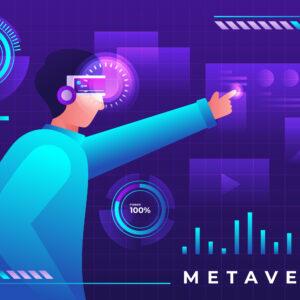Today, digital assets occupy a big part of our day-to-day lives. We view photos and videos online and exchange digital files with our colleagues. Bitcoin’s growth, in particular, is no surprise. This guide to cryptocurrency trends predicted it would grow by 200% this year. So far, it’s exceeding these expectations, with analysts predicting its value surpassing the six-digit mark this year.
Securing digital assets is increasingly crucial as they continue to enter the mainstream. One-way institutions do so is with digital asset custody, which involves third-party services looking after your digital assets for a fee. But why should your organization consider leveraging these services instead of looking after assets on your own? Below are a few benefits to consider.
What Is Digital Asset Custody?
Digital asset custody is a comprehensive term that includes various methods of protecting and storing digital assets on behalf of their respective owners. Digital asset custody is in multiple ways similar to conventional financial assets; crypto custody providers take accountabilities for securely storing investors’ assets and typically offer other services, including selling and buying them.
However, there are also significant discrepancies. Notably, the nature of digital assets indicates that secure custody is even more crucial and technically critical than traditional financial assets. Digital assets such as cryptocurrencies are transferred and created between owners using a decentralized network called a blockchain and cryptography. Owners acquire digital assets in transactions registered and documented on the blockchain, and those transactions are naturally the only documentation of the digital assets’ existence.
The owners are issued and provided with cryptographic keys that prove their legitimate ownership of the assets, to be utilized when transferring them between other owners or using them to buy things. So, technically, digital asset custodians don’t store the assets themselves; they hold the original owners’ cryptographic keys. To ensure the owner’s assets are safe, The digital asset custodian must sheerly protect those keys. If they are stolen or lost, the digital assets in custody may be unrecoverable.
How do Digital Asset Custody Solutions work?
Wallets can take many forms, using various methods to securely store these keys and generally applying access controls such as passphrases or passwords to protect the assets. Some wallets are specifically designed to store a single type of cryptocurrency, but many such others can securely store multiple digital assets in custody.
Wallets provided by digital asset custodians manage the keys on behalf of the owner. With some assets in custody offerings, the owner may need to learn or have direct access to the private keys of those wallets. Suppose the owner tends to forget their password. In that case, the digital asset custodian can verify their respective identity to ensure they don’t lose their digital assets and regain access to the same.
Owners that prefer to manage their digital assets, as opposed to relying on a digital asset custodian, may use their personal wallet, such as a privately owned hardware device that stores their keys. This gives them more control over the wallet keys. Still, it also establishes greater responsibility and accountability of the assets to protect those keys and their password from theft or loss.
Advantages of using a crypto digital asset
- Reduced risk: In addendum to offering advanced security, crypto custody providers can reduce investors’ stakes in other ways. Regional authorities licensed some providers to act as digital asset custodians. Providers must protect investors’ assets against theft, loss and unauthorized use to obtain a license. Major digital assets in custody providers may also have some insurance that can cover potential losses caused due to theft or other causes.
- Simplicity: Individual investors don’t have to stress about maintaining or tracking private keys because the crypto digital assets in custody provider does the task for them. This becomes more significant as investors’ holdings begin to become more complex, perhaps involving multiple digital assets and more-frequent transactions.
- Greater security: Financial service institutions have the experience and resources to provide highly secure digital asset in custody solutions that offer excellent protection against hackers or internal misuse.
- Efficiency: This digital simplicity translates into excellent functional and operational efficiency for institutional investors. Less effort and time are needed to manage a portfolio of digital assets in custody.
Conclusion
Digital custody is central to the mainstream adoption of cryptocurrencies and other digital assets. Robust digital asset custody offerings from exchanges, banks and other financial services firms give investors’ confidence that their investments are safe, enabling them to trade assets quickly and easily. As a result, digital custody will be critical to allowing the continued expansion of digital assets. Liminal is a self-custodial solutions provider for digital assets across multiple blockchain protocols.
While creating Digital asset especially Bitcoins or any other crypto currency security is the most crucial factor which should not be ignore by any crypto investor so to protect multisignature wallet technology was developed using blockchain technology. To know more about multisignature wallet checkout this post.
Liminal’s motto of “Simplifying Self-Custody” makes it extremely easy and secure for everyone to manage their digital assets. The platform offers enterprise solutions to facilitate the automation of processes involving the transfer and storage of digital assets.











